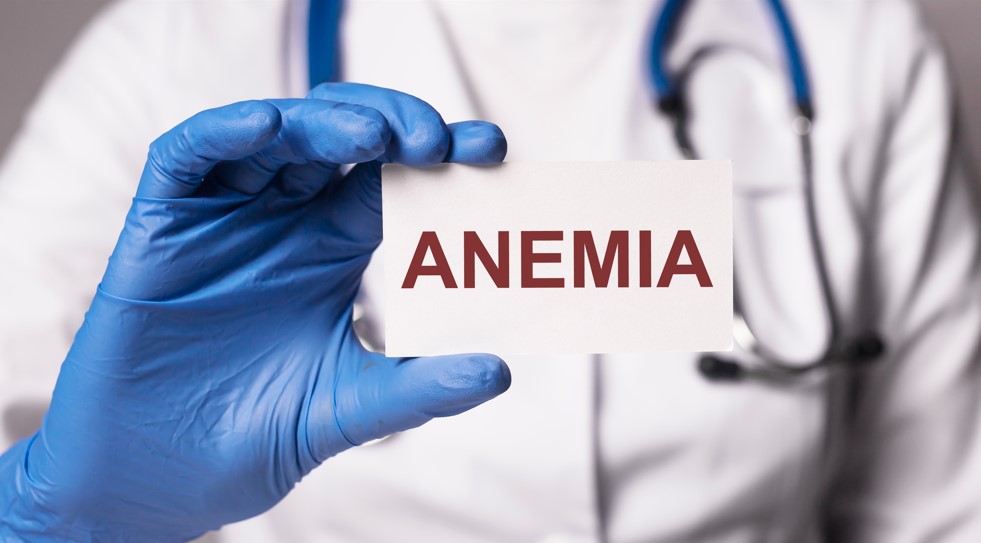
Anaemia is a medical condition characterized by a deficiency of red blood cells or hemoglobin in the blood, leading to reduced oxygen-carrying capacity. This can result in symptoms such as fatigue, weakness, pale skin and shortness of breath.
Types of Anaemia
There are several types of anaemia, including:
- Iron-deficiency anaemia: Caused by a lack of iron in the body, which is necessary for making hemoglobin.
- Vitamin B12 deficiency anaemia: A lack of vitamin B12, which is essential for red blood cell production.
- Folate deficiency anaemia: Similar to B12 deficiency anaemia, but caused by a lack of folate (vitamin B9).
- Hemolytic anaemia: Occurs when red blood cells are destroyed faster than they can be produced.
- Aplastic anaemia: A rare condition where the body stops producing enough new blood cells.
- Sickle cell anaemia: A genetic disorder where red blood cells become rigid and sticky, causing blockages in blood vessels.
- Thalassemia: An inherited blood disorder where the body makes an abnormal form of hemoglobin.
- Anaemia of chronic disease: Occurs in individuals with chronic diseases like cancer, HIV/AIDS, rheumatoid arthritis, etc.
- Fanconi anaemia: A rare genetic disorder that leads to bone marrow failure.
- Pernicious anaemia: A condition where the body can’t make enough healthy red blood cells due to a lack of vitamin B12 absorption.
Must read: Get the best in homeopathy for complete well being
Causes of Anaemia
The various causes of Anaemia include:
- Iron deficiency: Insufficient intake of iron-rich foods or poor absorption of iron by the body.
- Vitamin deficiencies: Lack of vitamin B12, folate (B9) or vitamin C can lead to anaemia.
- Chronic diseases: Conditions like cancer, kidney disease, HIV/AIDS, rheumatoid arthritis and inflammatory bowel disease can cause anaemia.
- Genetic disorders: Conditions like sickle cell anaemia, thalassemia and Fanconi anaemia are inherited and can pass from one generation to another.
- Bone marrow disorders: Diseases that affect the bone marrow’s ability to produce red blood cells such as aplastic anaemia or myelodysplastic syndromes.
- Chronic infections: Certain infections can interfere with red blood cell production or cause their destruction, leading to anaemia.
- Medications: Some medications such as chemotherapy drugs, antibiotics and antiseizure medications, can cause anaemia as a side effect.
- Blood loss: Acute or chronic bleeding from injuries, surgery, menstruation or gastrointestinal conditions can lead to anaemia.
- Pregnancy: Pregnant women are at risk of developing anaemia due to increased blood volume and the body’s need for more iron to support fetal development.
- Poor nutrition: Diets lacking in essential nutrients like iron, vitamin B12 and folate can contribute to anaemia.
Symptoms of Anaemia
Symptoms of anaemia can vary depending on its severity and underlying cause, but common symptoms include:
- Fatigue and weakness
- Pale or yellowish skin
- Shortness of breath
- Dizziness or lightheadedness
- Cold hands and feet
- Rapid or irregular heartbeat
- Headache
- Brittle nails
- Pale gums
- Chest pain (in severe cases)
- Poor concentration
- Poor memory
- Hair loss (in some cases)
It’s important to note that these symptoms can also be indicative of other health conditions, so it’s essential to consult a healthcare professional for proper diagnosis and treatment.
Is homeopathy effective for Anaemia?
Homeopathy offers a safe and effective treatment for anaemia as it takes into account the complete totality of symptoms, the underlying cause as well as the genetic makeup of the patient.
What are the Best Homeopathic Medicines for Anaemia?
There are many homeopathic medicines for anaemia but the following medicines have worked wonders in most of the cases.
| Homeopathic Medicine | Symptoms | Better | Worse |
| Carbo Vegetabilis | Anaemia after acute disease. | Fanning. | Warm, damp weather, Fat food. |
| China | Anaemia after excessive hemorrhage from the body. Anaemia after long-standing diarrhoea and vomiting. | Open air, Hard pressure | Slightest touch. |
| Ferrum Metallicum | Paleness of the skin, which becomes flushed on slightest emotion or exertion. Palpitation due to anaemia. | Walking slowly about. | Sitting still. |
| Ferrum Phosphoricum | Anaemia with violent throbbing pain in head. | Cold applications. | Night, 4 to 6 am |
| Phosphorus | Anaemia due to long lasting depression. | Dark, Lying on right side. | Touch, Change of weather. |
| Silicea | Anaemia due to poor or malabsorption particularly in children. | Warmth, Wrapping up head. | During menses, Uncovering. |
| Veratrum Viride | Dimness of vision due to anaemia. | Rest. | Warm drinks |
Disclaimer
None of the medicines mentioned, including services, at homeoclinicbydrnanda.com should be used without the clearance from your physician or healthcare provider. We do not claim to cure any disease which is considered ‘incurable’ on the basis of scientific facts by modern medicine. The website’s content is not a substitute for direct, personal, professional medical care and diagnosis.



